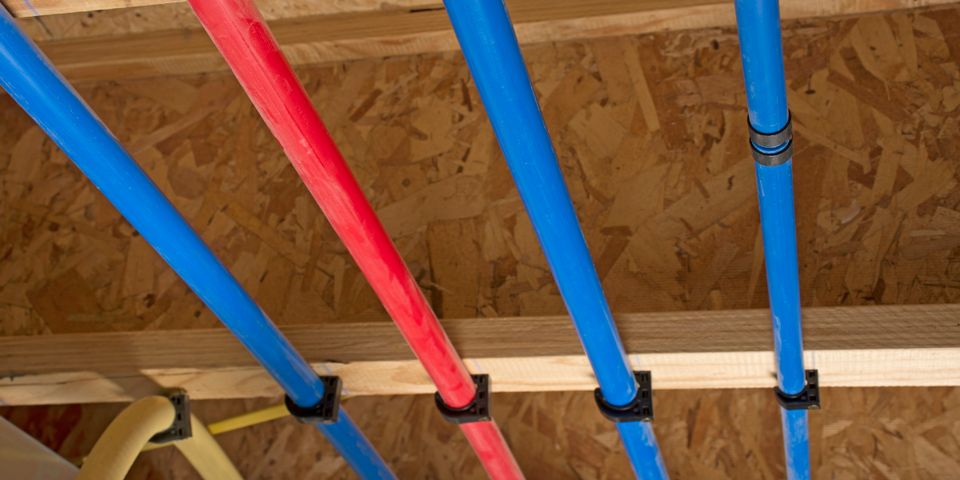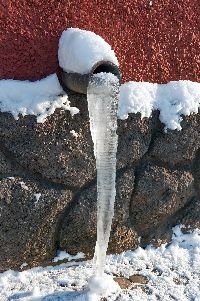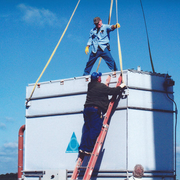
Frozen pipes often burst, requiring a plumber to handle repairs, as well as cleanup from water damage. However, you can avoid this issue by covering your plumbing during winter to keep tubes warm and prevent ice formation. Pipes that should be insulated include systems inside exterior-facing walls since they are exposed to outdoor temperatures. You also need to protect those located in crawl spaces, attics, and cabinets where the temperature isn’t controlled. Use the following guide to learn about some common insulation methods.
How to Insulate Pipes to Prevent Freezing & Bursting
1. Foam or Rubber Sleeves
Pipe sleeves are typically made from rubber or foam materials, and they are perfect solutions for long, straight portions of exposed plumbing in basements and attics. They come in lengths up to 6 feet to make larger insulation jobs easier and quicker. The material resembles a pool noodle floaty. Tubes have one long slit down the side so you can wrap them around pipes. You can also cut down the sleeve sizes to ensure they easily fit specific lengths of plumbing.
2. Fiberglass Pipe Wrapping
Pipe wrap is often made from fiberglass and has one side that’s lined with a foil material that traps warmth. This solution is perfect for oddly shaped pipes and long sections that elbows. The fiberglass material is wrapped in a spiral motion around pipes and corners, and duct tape is used to secure the ends. It works better than foam or rubber sleeves in areas that are extremely warm, like near a water heater or furnace. These products could melt or warp when exposed to heat.
3. Heat Tape

Heat tape or cable is placed on exterior sections of pipes that are highly prone to freezing, and when plugged into an outlet, it radiates warmth to keep plumbing at normal temperatures. Some products are self-monitoring, so you don’t have to manually turn them on or risk a fire hazard when you forget to turn them off. Consider having a plumber install heat cables for safety and efficiency since it requires electricity to operate.
4. Outdoor Faucet Covers
Hose bibs and other outdoor faucets are completely exposed to the elements, which means the attached piping is prone to freezing. Winterize your outdoor spigots by draining and shutting off the water, and cover them to provide more insulation and protection against harsh weather and precipitation. You can also eliminate cold air from freezing pipes by sealing gaps and openings around pipes that snake through exterior-facing walls.
If you need help winterizing your plumbing, turn to Disponette Service Co. Inc. in Lexington, KY. The expert plumbers at this family-owned company can perform commercial and residential water heater repairs, pipe fittings, and backflow testing to keep systems functional year-round. They boast over 40 years of experience and also offer HVAC services for air conditioners, boilers, chillers, and heat pumps. Call (859) 255-7157 to set up an appointment, or visit the website to learn more.
About the Business
(4 reviews)
Have a question? Ask the experts!
Send your question

